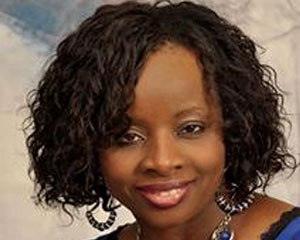
PEOPLE often tend to get comfortable with their current station and consequently bury the zeal to continue marching forward to conquer new territories and scale new heights. This has seen many of them getting to the end of their journey on earth without having achieved all that God would have planned for them.
BY PHILLIP CHIDAVAENZI
In her new book titled It’s Time to Shift from Fear to Faith, Dr Sithembile Stem Mahlatini confronts the obstacles that draw back people in life and dares such people to reconsider what they can achieve if they only try to go a step further out of their comfort zone. She identifies fear as the major thorn that chokes the seed of faith and hindesr it from germinating.
This book, published last year, is particularly targeted at women and girls across the globe “whose physical and emotional turmoil and submission has prevented them from pursuing their personal best”. She acknowledges her mother, Idah Sangadza Mahlatini, who had to overcome obstacles and the fear to become a different woman.
In our normal reading of books, we are used to chapters, but Mahlatini opts for ‘steps’, with the book seamlessly moving from one step to the next (Steps 1 to 10) instead of chapter to chapter. Through these ‘steps’, she addresses issues of self –identification, the importance of having a personal vision, harnessing the power of resilience, developing a positive mentality, life choices, procrastination and success, among others.
While dealing with the thorny issue of fear and its negative effects, Mahlatini explores how many Zimbabweans in particular and Africans in general have allowed fear to hold sway over theirlives and for that reason, remain stuck in menial jobs, “working in nursing homes, providing home care services for the elderly and mentally challenged because they are afraid to make a shift” (pp2).
Mahlatini is authentic. She does not ‘preach’ from the pulpit somewhere high up there but sits right in the pews with the rest of the flock because, from personal experience, she understands the fears associated with working without a valid permit in the Diaspora, opening a new business or going back to school: “I understand all these worries. I’ve experienced them myself,” she writes (pp2).
Against this backdrop, she becomes qualified to speak on these issues. She, however, looks at a wide raft of areas in which people often get stuck because of fear. These include the fear of divorce, changing jobs or starting a business. She singles out ‘rationalisation’ as one of the problems that keep people hemmed in at times when they ought to move.
- Chamisa under fire over US$120K donation
- Mavhunga puts DeMbare into Chibuku quarterfinals
- Pension funds bet on Cabora Bassa oilfields
- Councils defy govt fire tender directive
Keep Reading
She also pigeon–holes allowing fear to run our lives as yet another problem that has seen many fail to take the first step that would make a difference in their lives. This is a book littered with many valuable life nuggets that anyone seeking to advance in life should have in their book shelf.











